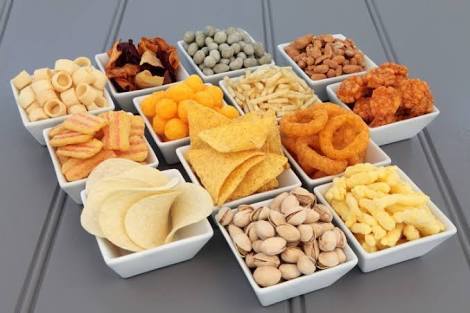
Stop! What you’re eating is not a snack. It’s a treat! We have been inundated with food marketing of low nutrition substances offered as a potential snack. Some companies have even used the name of their food to indicated that this food is indeed a snack. Snack-wells anyone?
A snack is something nutritionally significant that gets you from point A to point B. It’s that food item for when you are hungry, let’s say at 3:00 and you need fuel. A treat is something fun for your mouth and brain. It doesn’t satisfy hunger, but it does satisfy you in a different way. We get to have both.
What doesn’t work is when we are eating treats and expecting them to hold us like a snack might. If you eat a treat at 3:00 and expect it to hold you until dinner time, you might be eating your dinner, and your left thigh. We walk in the house “hangry!” We can experience a sense of being overly hungry when eating treats.
Snacks are going to be more nutritionally significant. They might have some fiber, fat and protein or some combination that works for you.
What might that be? Maybe a Greek yogurt with fresh fruit, an apple and some nut butter, or hummus and veggies.
Many of us have been so brainwashed by food marketing that we haven’t considered what we’re eating and what we are expecting that food to do for us. Take a typical granola bar. When you look at the ingredients, you might see that there is a lot of sugar and calories, but not much protein or fiber. We believe it’s a healthy choice because it’s “granola” after all, but the proof is how long you feel sustained after eating it.
The challenge with sugar is that many of us find that one treat isn’t enough and we crave more and more. We have something in the morning, something mid-afternoon and start scrounging around the kitchen after dinner looking for “just something…”
We think it’s hunger, but it’s just a drive for a treat. And we get to have treats. A treat in and of itself isn’t the problem. It’s the craving cycles they can illicit. It’s also what we expect any food to do for us and remaining conscious with our choices and expectations.
This is a great lesson for children. They too are vulnerable to the marketing of snacks and treats. But they need to think about food that sustains them and food that acts as treats. Yes they get to have both. But giving a child a yogurt that if full of sugar isn’t doing much to sustain them. And this isn’t a judgement. I did it too. We all just try and get through.
I encourage the whole family to talk about healthy snacks. Have everyone talk about what foods feel satisfying and sustaining and what foods just feel fun. And some foods might be both.
Look at food labels. Be aware that food marketers use special words, colors, font, packaging and placement to get you to purchase the item. Organic doesn’t mean healthy. Low fat doesn’t mean low sugar. Other words you might see, “Heart health” “Antioxidants” “Essential Nutrients.” Over and over researchers tell us that these “additions” are so minuscule that it adds almost zero nutritionally to any food.
So read labels. Feel your body. Notice grams of fats and sugars. Notice how much protein satisfies you. Notice if there is fiber to keep you going.
And then decide. “Am I hungry? Do I need a snack?” or “Do I want something fun to eat?” Both choices are fine. Just don’t get fooled.


Wonderful reminders!